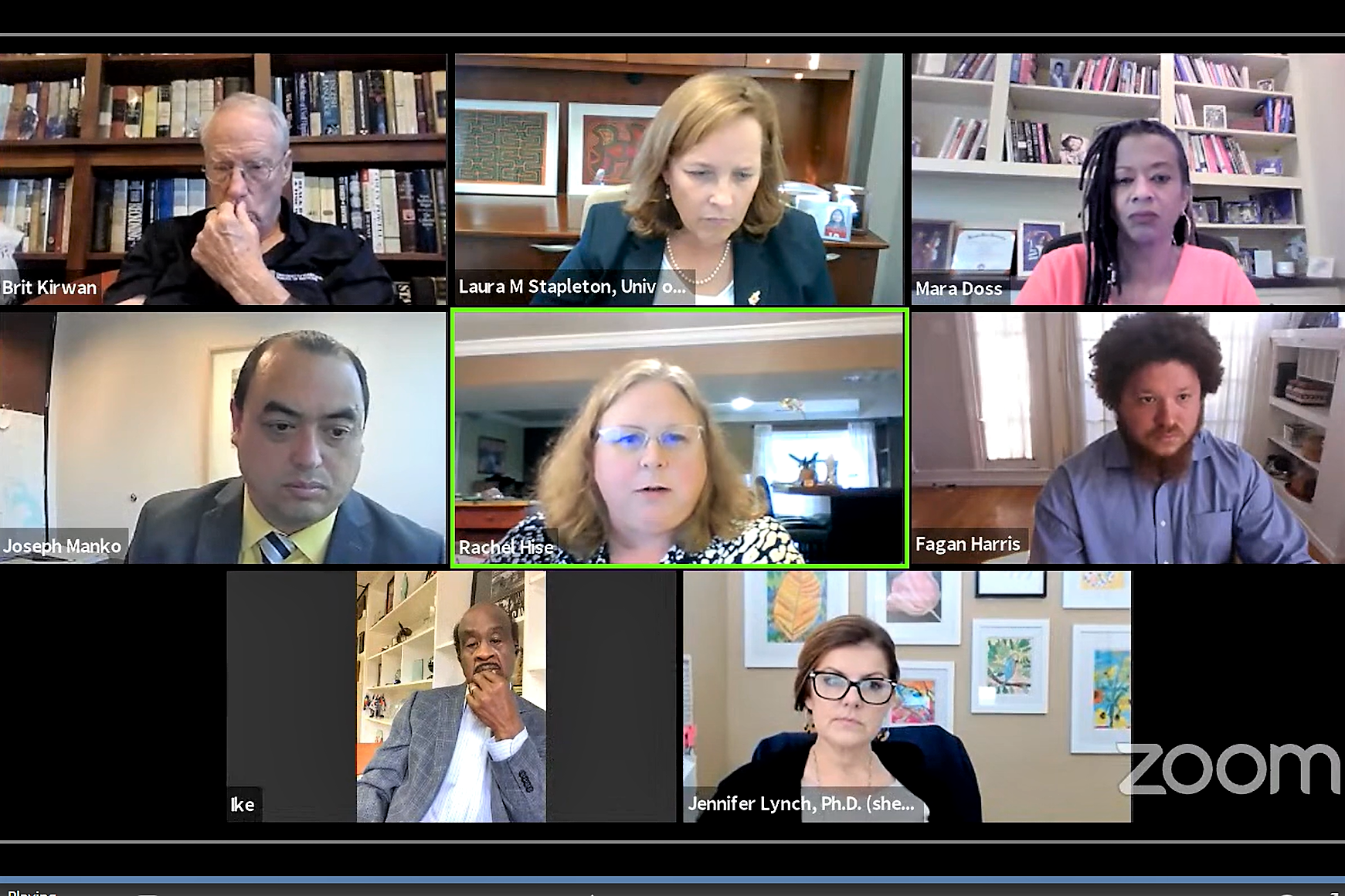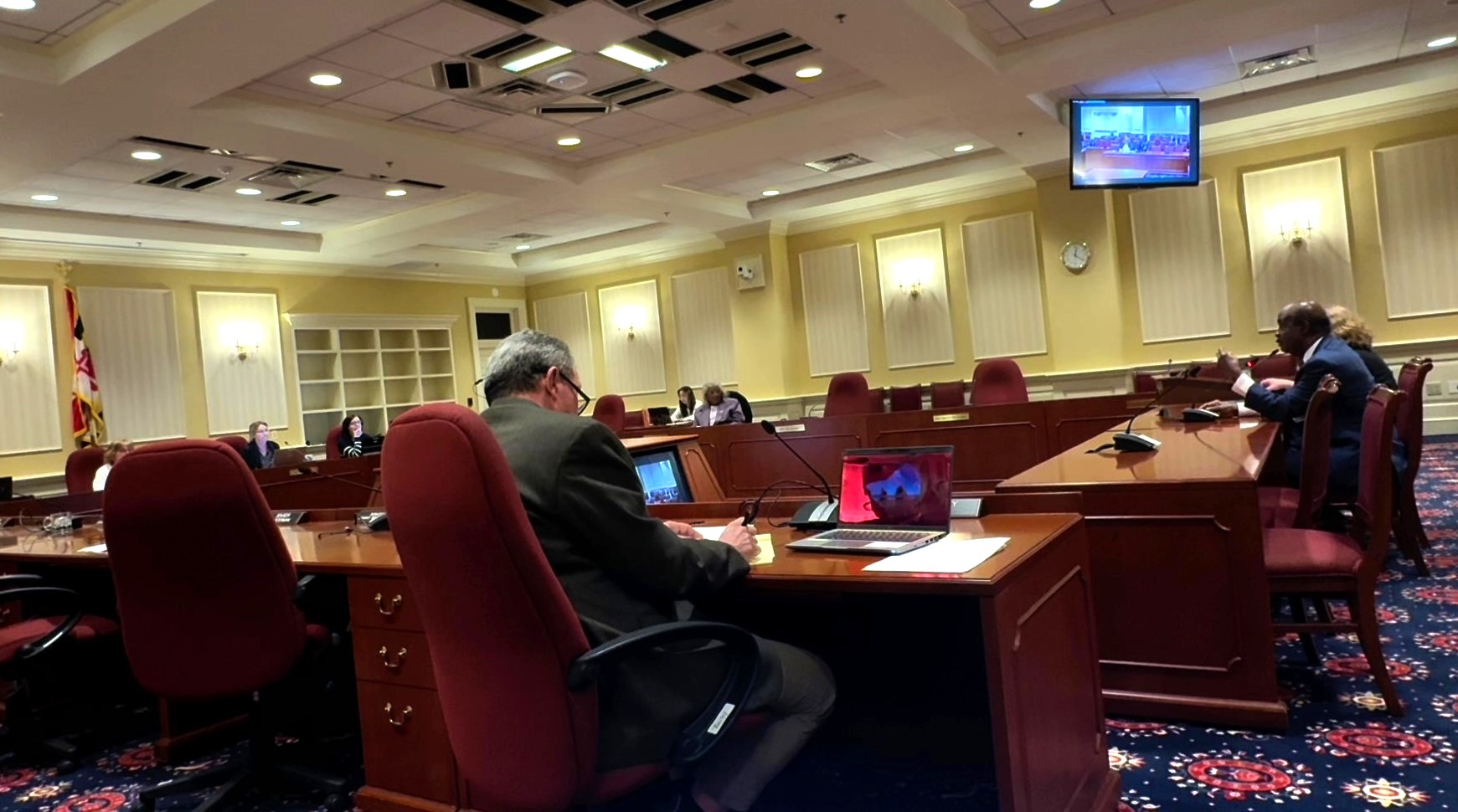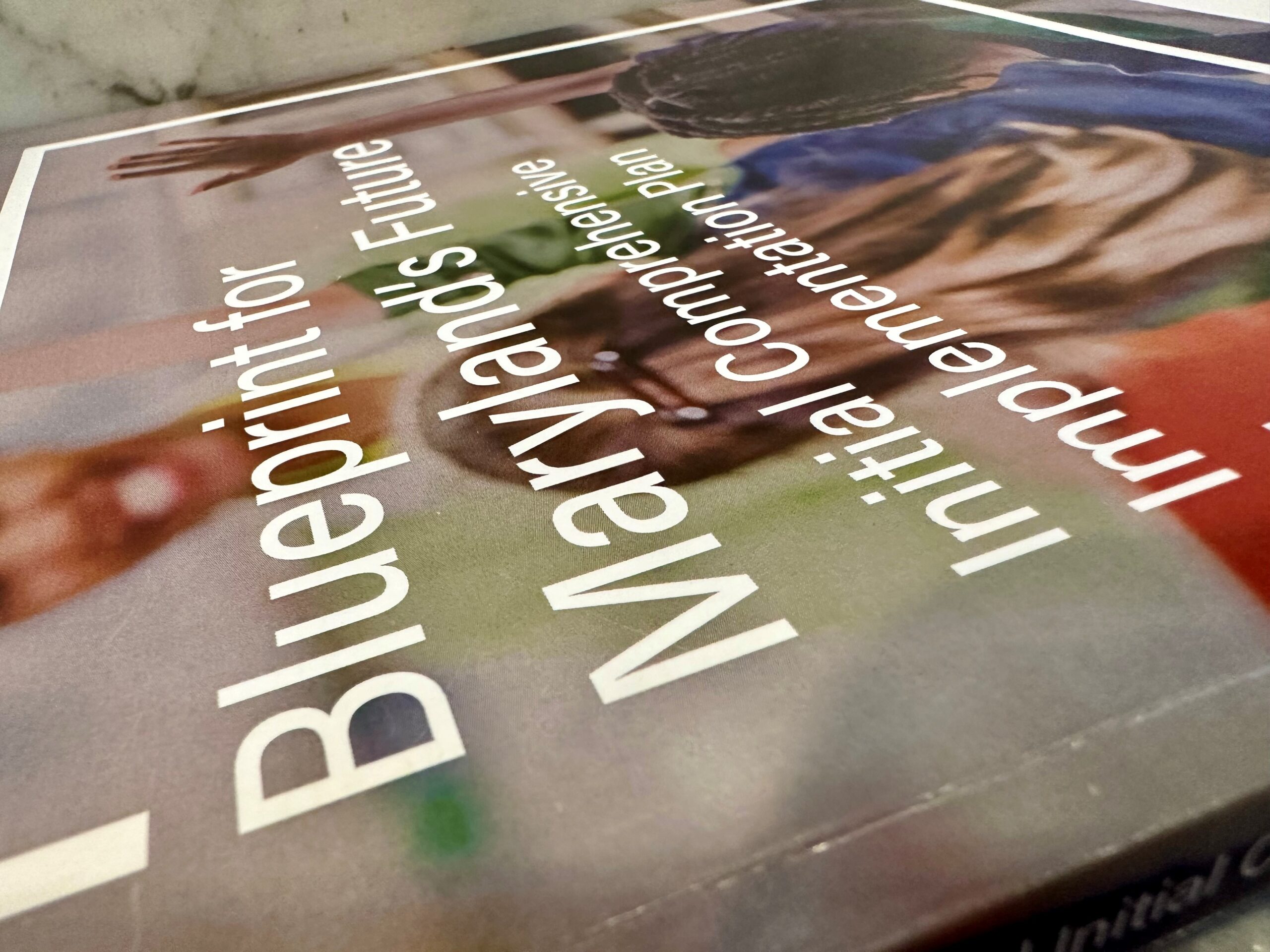Without Full Staff, Blueprint Accountability Board Faces Deadline for Education Reform Implementation

Maryland’s education reform oversight board recently hired a new executive director last week to help implement the sweeping Blueprint for Maryland’s Future education reform plan, but it does not have enough funds to hire additional staff members for the next several months, hampering its progress.
Without a full staff and funding, it is unlikely that the Accountability and Implementation Board can meet a deadline in two weeks to develop a comprehensive education reform implementation plan.
Out of the $4.8 million the AIB was supposed to receive this fiscal year, the board only has $693,000 to work with right now, according to Rachel Hise, the new executive director of the AIB.
“It’s a challenge because there are no permanent positions in the budget for the AIB right now,” Hise said. The executive director, who earns $185,000 a year, is responsible for leading the AIB’s day-to-day operations, managing its annual budget and establishing accountability metrics for local school systems.
Hise, who had worked as a Department of Legislative Services policy analyst for the last three decades, said she is excited to work on the implementation side of the Blueprint after years of advising as a legislative analyst. “I feel like it’s the capstone to my 28 years career in public service, most of it working in education fiscal policy,” Hise said.
The Blueprint bill stipulates that the governor fund $1.8 million per year for the AIB to support a total of 15 staff members, as well as an additional $3 million for technical assistance to local school systems through the 2024 fiscal year.
Because the Blueprint officially became law after a veto override last year, Gov. Lawrence J. Hogan Jr. (R) did not have to include this funding in his proposed budget for this fiscal year, which started July 1. To account for this, lawmakers directed the first $4.8 million from new sports betting revenue to go to the AIB.
Revenue to the State Lottery and Gaming Control Commission from sports betting is estimated to generate $13 million this year, so the AIB should be fully funded by the end of the fiscal year, Hise said.
As part of the governor’s annual budget package released last month, Hogan set aside $280,000 for the AIB to use this year, which will become available once the General Assembly passes a budget bill, likely in April. The AIB will be able to hire four more staff members with those funds, Hise said.
Michael Ricci, director of communications for Hogan, said that a budget amendment of $692,000 was processed to the AIB in November and an additional budget amendment will be processed in the next few weeks, as revenue is collected from the state lottery. Ricci said the disbursements are consistent with the legislature’s plan for funding the AIB.
As the AIB waits for more revenue from sports betting and for the General Assembly to pass next year’s budget bill, they will have to work without a full-time staff — which would include deputy directors, assistant attorneys generals and fiscal support staff.
The first order of business for the AIB is to modify the Blueprint implementation timeline set by the statute because of its inability to meet deadlines without a full-time staff. For instance, the AIB is supposed to have a comprehensive implementation plan ready by Feb. 15.
Next week, the AIB plans to virtually meet with State Superintendent Mohammed Choudhury and State Board of Education President Clarence Crawford to confer about possible adjustments to the Blueprint implementation timeline. The AIB will then propose a new timeline to the governor and General Assembly by mid-February, Hise said.
Last week, Choudhury told the Senate Education, Health and Environmental Affairs committee that he will be recommending a modified Blueprint implementation timeline that will give local school systems “more breathing room” to develop their Blueprint plans. He said he had been working closely with the AIB.
But a leading education reform advocate said the delay in funding and inability to fully staff the AIB should have been prevented.
“It is ridiculous that we passed a law that said a certain amount of money was due to this body, and here we are in the first school year it was mandated, without the funding,” said Shamoyia Gardiner, executive director of Strong Schools Maryland, a grassroots organization advocating for the Blueprint.
“This is a larger question of the stability of the Blueprint and what state leaders are willing to do to ensure that implementation occurs with fidelity,” she continued.
The AIB is fully funded at $4.8 million in Hogan’s proposed 2023 fiscal year budget.




 Creative Commons Attribution
Creative Commons Attribution